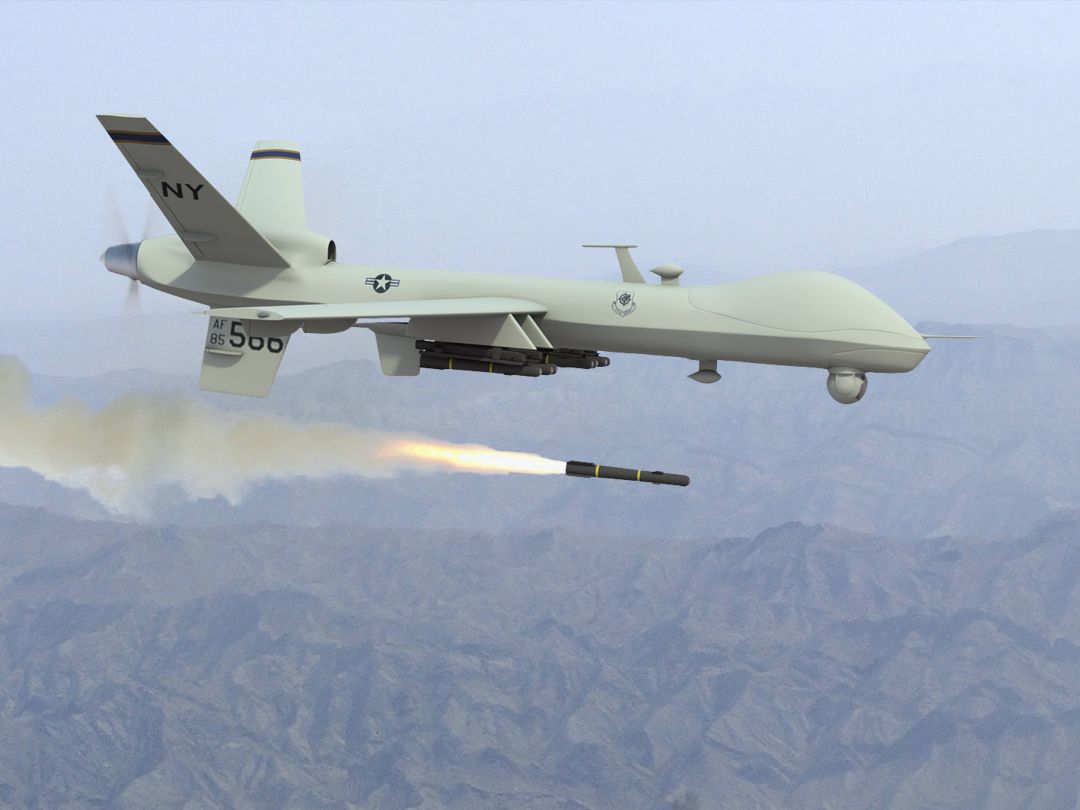The conflict in Yemen has taken a new turn as Houthi rebels successfully shot down two American MQ-9 Reaper drones in less than a week. This development has not only raised concerns about the escalating violence in the region but has also underscored the growing impact of the Israel-Hamas conflict on neighboring countries.
The United States military confirmed the incidents on Wednesday, acknowledging that the drones were downed by Houthi rebels in Yemen. The MQ-9 Reaper, also known as the Predator B, is a remotely piloted aircraft that is primarily used for intelligence, surveillance, and reconnaissance missions. It is equipped with air-to-ground missiles and other weapons systems, making it a valuable asset for military operations.
The downing of the drones by Houthi rebels is a significant escalation in the conflict in Yemen. The Houthi rebels, who are backed by Iran, have been fighting against the Yemeni government and a Saudi-led coalition since 2014. The conflict has resulted in widespread violence, displacement, and humanitarian crises in the country.
The involvement of the United States in the conflict through the use of drones has further complicated the situation in Yemen. The US has been conducting drone strikes in Yemen for years as part of its counterterrorism efforts against al-Qaeda and other extremist groups in the region. However, the downing of the drones by Houthi rebels has raised questions about the effectiveness of US military operations in Yemen and the security of American assets in the region.
The timing of the drone incidents is also significant, coming in the midst of the Israel-Hamas conflict. The conflict, which began in early May, has seen a significant escalation in violence between Israeli forces and Hamas militants in the Gaza Strip. The conflict has resulted in hundreds of deaths and widespread destruction, drawing international condemnation and calls for a ceasefire.
The spread of the Israel-Hamas conflict to neighboring countries like Yemen highlights the interconnected nature of conflicts in the Middle East. The region has long been a hotspot for geopolitical tensions and rivalries, with various actors vying for influence and control. The involvement of external powers like the United States and Iran in conflicts like Yemen only serves to further complicate and escalate the situation.
The downing of the MQ-9 Reaper drones also raises questions about the vulnerability of US military assets in the region. The drones are a key component of the US military’s operations in the Middle East, providing valuable intelligence and surveillance capabilities. The fact that Houthi rebels were able to successfully shoot down two drones in such a short period of time suggests that they may have access to advanced anti-aircraft weapons systems that pose a threat to US forces in the region.
The US military has not disclosed the exact circumstances of the drone incidents or the extent of the damage to the drones. However, the fact that the drones were shot down by Houthi rebels is a clear indication of the growing capabilities of insurgent groups in the region. The use of drones by non-state actors to target military assets highlights the evolving nature of warfare in the 21st century, where technology and asymmetrical tactics play an increasingly prominent role.
The downing of the drones is likely to prompt a reassessment of US military operations in Yemen and the wider Middle East. The US government may need to review its strategy and tactics in light of the growing threats posed by groups like the Houthi rebels. The incidents also highlight the need for improved security measures to protect American assets and personnel in the region.
The international community has called for a de-escalation of the conflicts in both Yemen and Gaza, urging all parties to seek a peaceful resolution to the violence. The United Nations has warned of the dire humanitarian consequences of the conflicts, with millions of people at risk of starvation, displacement, and other forms of suffering. The conflicts in Yemen and Gaza are just two examples of the many crises unfolding in the Middle East, highlighting the urgent need for diplomatic efforts to address the root causes of the violence and instability in the region.
In conclusion, the downing of two American MQ-9 Reaper drones by Houthi rebels in Yemen has further highlighted the regional impact of the Israel-Hamas conflict and the interconnected nature of conflicts in the Middle East. The incidents underscore the growing capabilities of non-state actors and the evolving nature of warfare in the 21st century. The international community must work together to address the root causes of the conflicts in Yemen and Gaza and seek peaceful solutions to the violence and suffering in the region.









